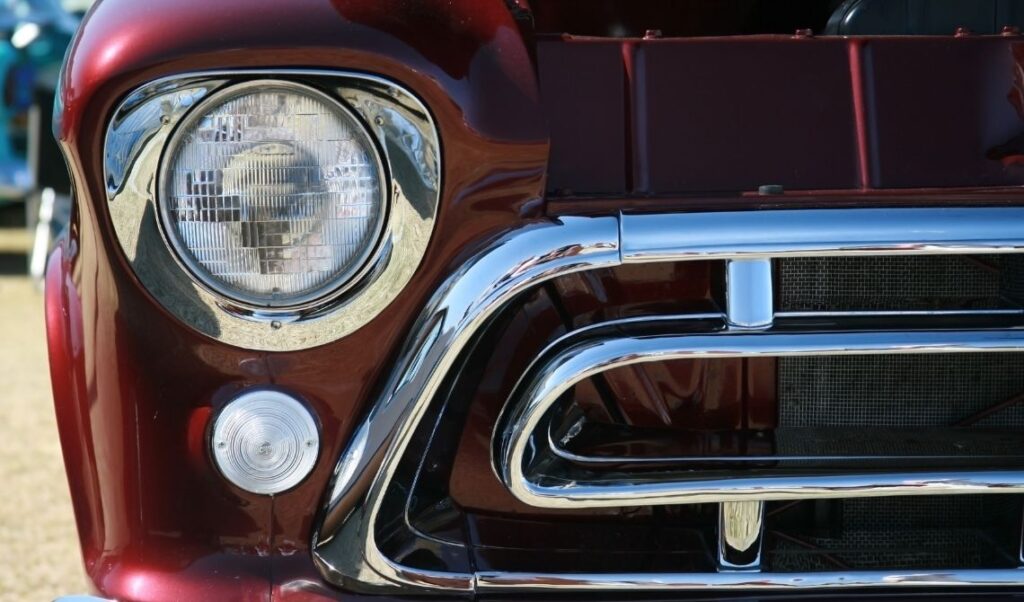Truck headlights, often taken for granted, serve as the guiding beacons of the highways, ensuring safe passage for drivers and other road users. In this comprehensive exploration, we will navigate through the intricacies of truck headlights, shedding light on their types, technological advancements, regulatory standards, and the importance of proper maintenance. As these powerful beams pierce through the darkness, they play a vital role in enhancing visibility, reducing accidents, and ultimately contributing to the overall safety of our roads.
I. The Significance of Truck Headlights:
- Enhancing Visibility: At the core of their purpose, truck headlights exist to provide visibility, particularly during low-light conditions. The powerful beams emanating from these headlights not only illuminate the road ahead for the truck driver but also serve as a warning signal to other drivers and pedestrians about the presence of a large vehicle on the road.
- Safety in Darkness: The importance of truck headlights becomes even more pronounced during nighttime driving. Without proper illumination, the risk of accidents and collisions significantly increases. Well-designed and properly functioning headlights ensure that the road ahead is well-lit, allowing the driver to spot obstacles, signage, and potential hazards.
- Weathering Adverse Conditions: Beyond the night, truck headlights are indispensable during adverse weather conditions such as heavy rain, snow, or thick fog. Different types of headlights are equipped to handle diverse weather challenges, providing drivers with the necessary visibility to navigate safely through challenging road conditions.
II. Types of Truck Headlights:
- Halogen Headlights: Widely used in the automotive industry, halogen headlights operate by passing an electric current through a tungsten filament enclosed in a halogen gas-filled bulb. They are known for their affordability, ease of replacement, and decent illumination. However, their lifespan tends to be shorter compared to some newer technologies.
- HID (High-Intensity Discharge) Headlights: HID headlights have gained popularity for their intense and bright illumination. These headlights create an electric arc between two electrodes within a gas-filled bulb, resulting in a clear and crisp beam. While energy-efficient, HID headlights may have a brief warm-up period before reaching full brightness.
- LED (Light-Emitting Diode) Headlights: In recent years, LED headlights have become the preferred choice for many modern trucks. Operating on semiconductor technology, LED headlights emit light instantly at full brightness. They are known for their energy efficiency, durability, and resistance to vibrations, making them a reliable option for truck manufacturers.
- Projector Headlights: Found in high-end trucks, projector headlights use a lens to focus the light produced by the bulb, creating a more controlled and directed beam. Beyond functionality, projector headlights often contribute to the aesthetic appeal of the vehicle, enhancing both style and visibility.
- Composite Headlights: Combining different lighting technologies into a single unit, composite headlights offer versatility. They may integrate halogen, HID, or LED bulbs along with additional features such as daytime running lights (DRLs) or turn signals, catering to diverse lighting needs.
III. Technological Advancements:
- Adaptive Headlights: Representing a significant leap in technology, adaptive headlights adjust their direction and range based on the truck’s speed, steering, and elevation changes. This adaptive feature enhances safety by providing improved illumination around corners and over hills, reducing the likelihood of accidents caused by limited visibility.
- Automatic High Beams: Automatic high-beam systems utilize sensors to detect oncoming traffic, automatically adjusting the headlight brightness to avoid blinding other drivers. This feature optimizes visibility while prioritizing the safety of all road users.
- Smart Headlight Systems: Leveraging sensors, cameras, and connectivity, smart headlight systems adapt to various driving conditions in real-time. These systems dynamically adjust the beam pattern, intensity, and direction, optimizing visibility without causing glare for other drivers.
IV. Regulations and Standards:
Truck headlights are subject to stringent regulations and standards to maintain uniformity and safety on the roads. In the United States, the Federal Motor Vehicle Safety Standards (FMVSS) establish guidelines for headlight performance, covering aspects such as brightness, beam pattern, and proper aiming. Adherence to these standards is mandatory for manufacturers to certify their vehicles for road use.
V. Proper Maintenance:
Proper maintenance is crucial to ensure optimal performance of truck headlights. Here are some key maintenance tips:
- Regular Cleaning: Over time, dirt and debris can accumulate on headlights, diminishing their effectiveness. Regularly clean the headlights with a soft cloth and non-abrasive cleaner to preserve maximum visibility.
- Aiming Adjustment: Proper headlight aiming is essential for optimal illumination without causing glare for other drivers. If headlights are misaligned, professional adjustment is necessary to meet required specifications.
- Bulb Replacement: Promptly replace burned-out bulbs to avoid compromised visibility. Keeping spare bulbs in the truck for emergencies and conducting regular inspections for wear or damage is a prudent practice.
- Lens Restoration: Headlight lenses may become cloudy or yellowed over time, reducing light output. Consider using a headlight restoration kit to polish and restore lens clarity, ensuring optimal visibility.
VI. Conclusion:
Truck headlights, often overlooked in their significance, are the unsung heroes of the road, tirelessly illuminating the way for drivers and enhancing safety for all. From the conventional halogen to the cutting-edge smart systems, the evolution of truck headlights continues to prioritize safety and efficiency. Understanding the different types, embracing technological advancements, adhering to regulations, and practicing proper maintenance are all crucial elements in ensuring that truck headlights fulfill their indispensable role in enhancing road safety. As we journey through the highways, let us acknowledge and appreciate the vital role these beams of light play in making our roads safer and our travels more secure.
For detailed information: Truck Headlight

